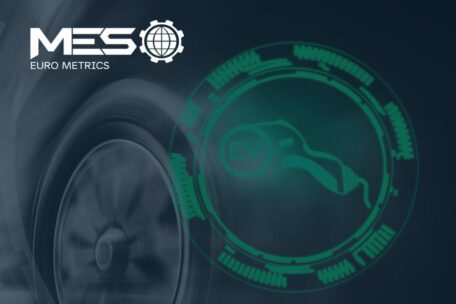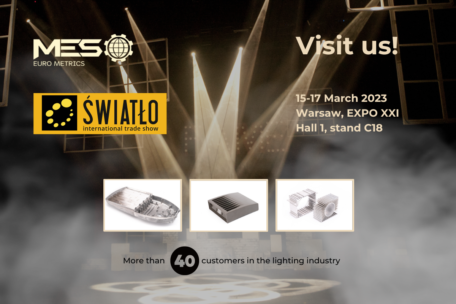
Our new movie
See what our work looks like! How are we doing? How do we source suppliers and who do we provide our services to? Today we talk about our activities - watch the video, meet
Read More
 If you are a manufacturer of electric vehicles, you are certainly dealing with problems in the supply chain, e.g. you may have trouble finding a trusted and reliable supplier of high-quality Tier I castings for your production lines.
If you are a manufacturer of electric vehicles, you are certainly dealing with problems in the supply chain, e.g. you may have trouble finding a trusted and reliable supplier of high-quality Tier I castings for your production lines.
MES continues to effectively manage the supply chain despite the current global situation – the war in Ukraine and the ongoing Covid-19 pandemic.
Here are the 5 tips we’ve prepared for you on how to find an EV component and parts supplier you can rely on, to grow your electric car production.
It may seem obvious, first make a list of what you expect from your supplier. Here are some questions to help you refine what to include:
Do we need prototyping, additional tooling, design assistance or other services?
One of the biggest challenges for new electric vehicle manufacturers is building several lots of parts responsible for performance in different spheres: for crash tests, fuel economy, reliability tests and hundreds of other tests.
While it would be ideal if the components for them were manufactured by manufacturing suppliers, in most cases it is not possible for them to supply a batch of parts in small series production. Most of the cars launched on the market have several trial versions that are used for testing and marketing purposes. The ideal solution for new EV manufacturers would be to find suppliers of prototypes, pilot projects, low-volume suppliers during the first two years of the project, and finally high-volume production.
Now that you’ve narrowed down your list of potential suppliers, it’s time to take a closer look at their manufacturing capabilities. Here are the key elements from our point of view that are worth paying attention to:
Components: What mechanical components can supplier supply for electric vehicles? Does it supply inverters, power electrical controllers, stators, rotors, motor housings, and a range of chassis parts?
Materials: Does its material capabilities include Aluminum, Brass, Copper, Magnesium, Zinc, Carbon Steel, Ductile Iron (ADI), Gray Iron, and Stainless Steel?
Lead time: What is the average tool preparation time by the supplier? Does this company offer rapid preparation of tools for prototypes?
Costs: How much will each of our EV components cost? Can the supplier reduce our tooling costs by up to 50%?
Methodologies: What is a typical business process related to sourcing suppliers? Are you confident that you won’t have problems with your suppliers? Are your suppliers ISO certified?
Value-added services: What other services can the supplier offer that can benefit us to your business (such as quality management, global logistics, domestic operations and inventory management)?
Experience and references: How long has the supplier worked in business? What is his experience in the EV industry? Can we talk to other customers of this supplier? What are the benefits of partnership with this supplier for electric vehicle parts and components?
As electric vehicle manufacturing is still a relatively new industry that is changing the way cars are made, it is important that the supplier understands the need for lightweight, corrosion-resistant parts. Whether you need parts for BEV (Battery Electric Vehicles), PHEV (Plug-In Hybrid Electric Vehicles) or NEV (New Energy Vehicles), you need to find a supplier that has the appropriate quality management system to ensure quality, from the raw materials used, production methods, to quality control of parts. Suppliers must thoroughly understand customer needs, properly manage sub-suppliers and implement production quality control processes.
This is probably the least tangible, but most important tip for finding the best EV components supplier. Do your own checkup to make sure you can trust your new supplier. Most vendor selection firms carry out procurement audits (mostly conducted by purchasing team members) followed by more complex quality system audits by quality specialists. Purchasing team members should conduct a procurement audit (typically 1-3 hours) to assess and confirm rapid ability, management attitude, commitment and competitiveness. Once established, a member of the supplier’s quality team should conduct an extensive audit of the quality systems and production process to verify supplier quality and production capabilities.
It is also important to find an EV component supplier that not only supplies parts but also a high level of engineering design support.
What can we provide for you?
You don’t have such a supplier? Contact us.

See what our work looks like! How are we doing? How do we source suppliers and who do we provide our services to? Today we talk about our activities - watch the video, meet
Read More
EV – a developing technology that changes the automotive market There are more and more electric vehicles, which are constantly gaining supporters. We can see many factors that are responsible for this state of
Read More
Light Fairs 2023 - let's meet! Increasing luminous efficiency, smart cities, IoT - lighting fixtures have long ceased to be assessed in terms of their basic function. Today, apart from design and efficiency, comercial
Read More